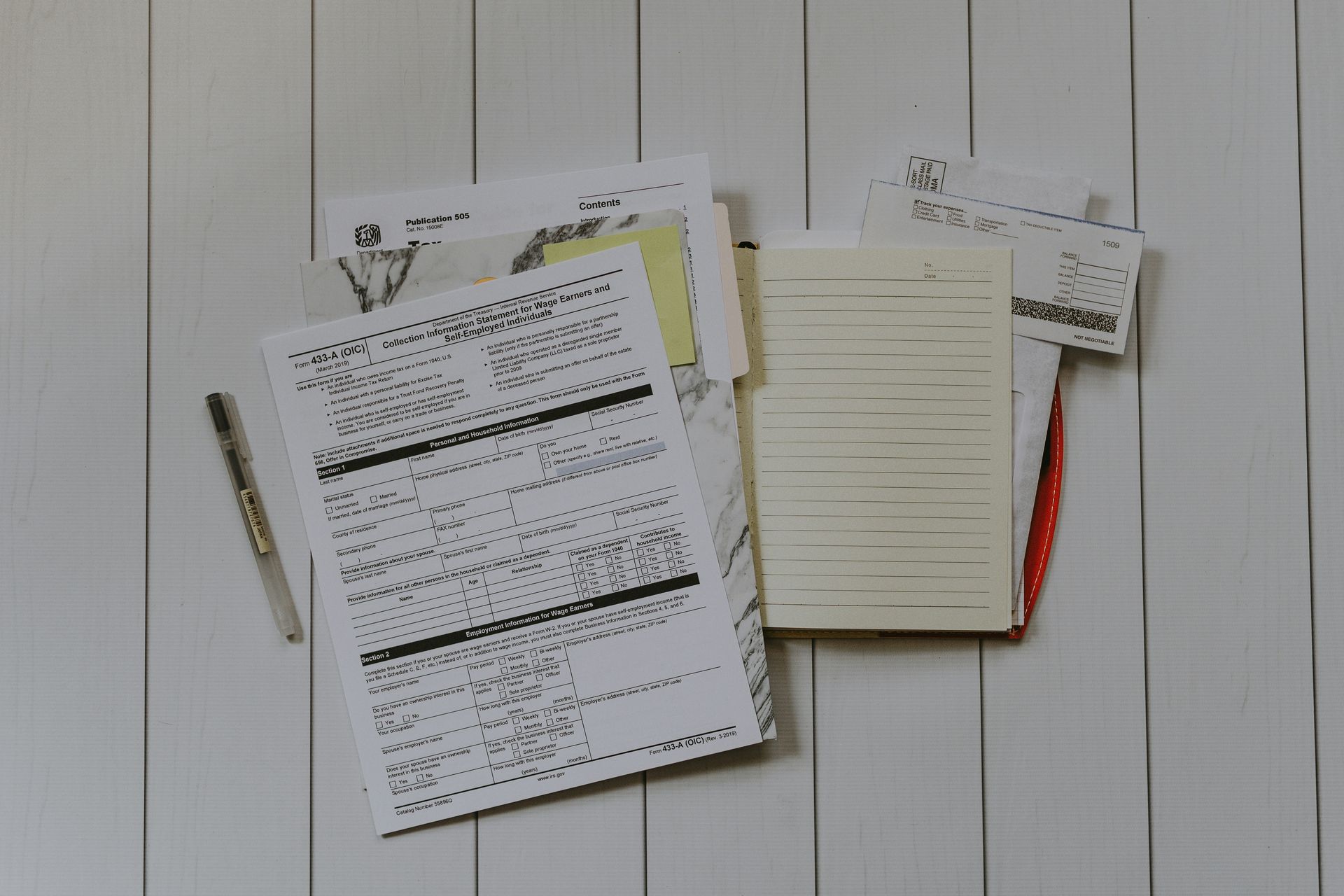The Importance of Bookkeeping Services for Small Business
July 19, 2024 |

Every business must keep track of its finances, and bookkeeping does just that!
Good bookkeeping is used for more than just making sound financial decisions. In this blog, we will look into why bookkeeping is important, how it will help your business be healthy financially, and why it is one of the basic means to grow and make money.
Join us as we uncover the basics of bookkeeping and learn why it's the foundation of every successful business.
What is Bookkeeping and Why Does it Matter?
Bookkeeping is the process of recording all the financial transactions of a business. It refers to the record of what has been purchased and sold, and the asset and liability accounts used in preparing complete financial statements.
Knowing financial performance is useful in order to ensure that the inflows or income and where the money is going to is monitored. It's also crucial for adhering to the statutes regulating taxation and principles of financial reporting.
Proper bookkeeping will give you useful data for planning budgets, projecting future costs, and making investments. It helps to build the trust between your business and partners, or even lenders since it shows how the funds have been accounted for. Besides that, bookkeeping safeguards your business by keeping reliable records of transactions and financial responsibilities. Bookkeeping simply makes sure that your business can effectively handle their accounts, remain lawful, and make informed decisions for growth.
How does Bookkeeping help your business?
Bookkeeping is like a detailed journal that records all your transactions. It allows one to clearly see how much profit they are making and where the money gets spent. This is important information to have when making various decisions for your business, such as spending and tax planning. This will also identify errors or omissions early enough to prevent disruption, keeping your business running smooth.
With local bookkeeping, small businesses are provided with the level of personal service and expertise they require. Support is available, tax laws are better understood at local levels, and the services are more affordable. They keep accurate records and give strategic advice to enable these businesses to make appropriate decisions about their financial dealings and support growth. This close partnership builds trust and, in turn, strengthens the local economy.
How will this help you grow your business?
Bookkeeping helps develop small businesses by keeping them organized. Business owners will have the knowledge to make wise decisions regarding the use of money and how to cut unnecessary costs. Bookkeepers also ensure that bills are paid on time, thus providing continuous financial flow for daily transactions and business growth activities. They can also be helpful with taxes, making everything right to avoid hassles. This makes it easy for small businesses to borrow or acquire loans and even invite investors on board when there is a need to expand since the local bookkeepers will have their finances in order.
Common FAQs About Bookkeeping
How is bookkeeping different from accounting?
Bookkeeping is the accurate recording of daily financial information, managing invoices, and processing payroll. Accounting is the process of analyzing financial data to create reports like balance sheets and income statements. These reports give insight into how a business is doing financially so that one may budget or plan while ensuring compliance with tax laws.
How do I reconcile my bank statements?
To reconcile your bank statements, start by gathering your bank statements and accounting records. Go through your bank statement line by line to compare and match with your records to identify any differences.
If you find discrepancies, the first step to fixing them is to identify the error. Often, an amount is listed incorrectly or transactions are missed in the accounting records.For any identified differences, adjust the accounting records to match the bank. After corrections are made, compare the balances and make sure they match. Reconciliation needs to be performed regularly, typically monthly.
How do I record or post larger purchases?
To record larger purchases in your accounting system, first, retain the invoice or receipt. Go to your preferred accounting software with the details of the purchase. Select the proper category for an expense, like supplies or a fixed asset, for instance. Any assets over $2,500 are categorized as a capitalized asset and need to be depreciated, following the De Minimis Safe Harbor election. Record what you owe for sales by credit. Check that your records are reflected in your bank or credit card statement.
When do I need a CPA or an accountant?
You may need an accountant when taxes become complicated. A growing business requires financial planning, and accurate financial statements. Accountants are also very useful in specialized areas of knowledge such as pass-through business reporting, employment taxation or estate planning. You can use an accountant to save time on financial tasks and be more efficient at working on the core aspects of running your business or your personal finances.
When do I need a bookkeeper?
You need a bookkeeper to take care of daily financial activities such as recording sales, purchases, and expenses. They organize all your business financial documents for you, run payroll, handle and track invoices and payments to clients, and reconcile bank statements to ensure that they agree with your internal records. Bookkeepers will keep your finances in order so that you can make informed business decisions and easily meet your financial reporting requirements.
Local bookkeeping provides customer-specific support to your small business. Local knowledge and affordable rates, coupled with expertise in taxes, allows local bookkeepers to help a business manage its finances properly so it can grow smartly. The choice of 'local' isn't all about numbers; it is being able to create a trusted relationship that works for everyone in the equation. Reconciling your books every month can be a time consuming task. As a business owner, you get to make the choice to do this yourself or confide in others to take the load off of you.
This is where Greg Reimann, CPA comes in. Greg Reimann, CPA is your dedicated accounting partner, specializing in empowering businesses with CFO-level insights and strategic financial guidance with 10+ years of experience to help. Our predictable billing, industry-specific expertise, CPA accreditation, and client-centric communication set us apart from the other firms. We’re your approachable, down-to-earth, local tax experts who are here to bring clarity to your finances so your business can achieve its goals.
Ready to get started?
Share this post:




